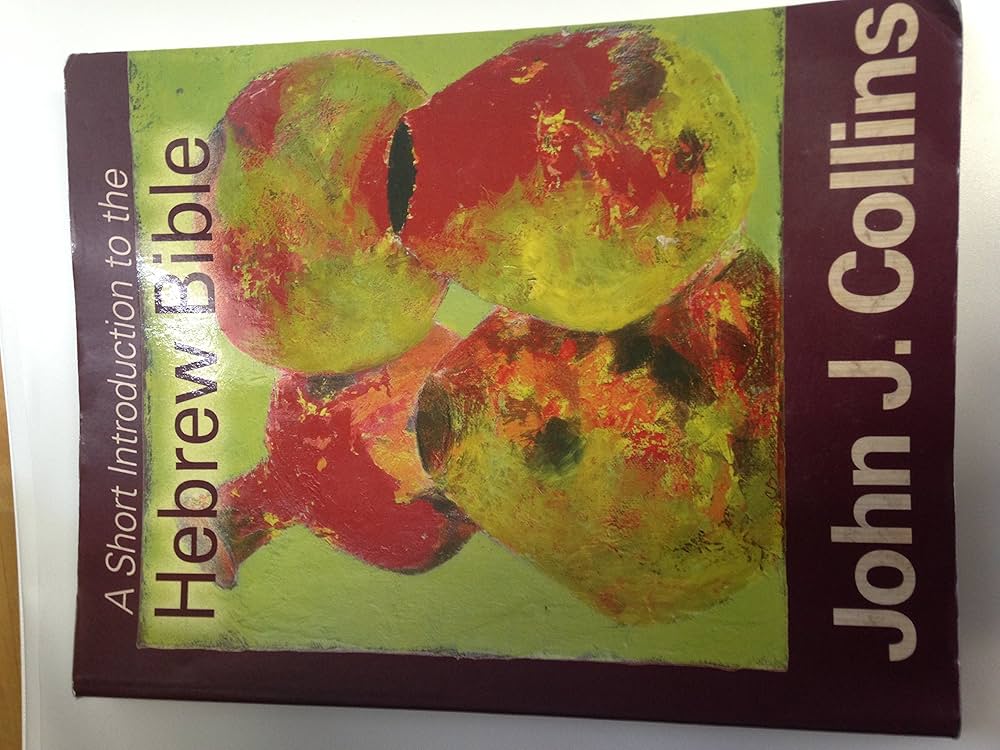Are you looking to deepen your understanding of the Hebrew Bible but aren’t sure where to start? Look no further than this blog post introducing the renowned scholar John J. Collins and his invaluable insights into the Hebrew Bible. In this short introduction, we will explore how Collins’ work can benefit both beginners and seasoned scholars alike in their study of the rich and complex text.
John J. Collins is a leading expert in Hebrew Bible studies, known for his clarity of thought and thorough research. By delving into his work, readers can gain a comprehensive overview of the key themes, historical contexts, and literary techniques found within the Hebrew Bible. Whether you are a student embarking on your first exploration of these sacred texts or a researcher seeking fresh perspectives, Collins’ insights offer a valuable roadmap to navigating the complexities of the Hebrew Bible with greater understanding and insight.
Unveiling the Essence of the Hebrew Bible with John J Collins
John J. Collins’ “A Short Introduction to the Hebrew Bible” provides readers with a comprehensive overview of the foundational text of both Judaism and Christianity. This scholarly work delves into the rich history, diverse authors, and complex themes found within the Hebrew Bible. Collins explores the historical context in which the texts were written, shedding light on the socio-political climates that shaped the narratives.
One of the key strengths of Collins’ book is his ability to guide readers through the intricate web of genres and literary styles present in the Hebrew Bible. From mythic tales to legal codes, prophecy to poetry, the Hebrew Bible encompasses a wide array of literary forms, each with its own unique insights into the ancient Israelite worldview.
Collins also addresses the ongoing debates surrounding the authorship and composition of the Hebrew Bible. By examining the various source documents, textual traditions, and editorial processes involved in shaping the canon, Collins highlights the dynamic nature of this ancient collection of texts. Readers are encouraged to consider the complexities of textual transmission and interpretation that have contributed to the ongoing vitality of the Hebrew Bible as a spiritual and cultural touchstone.
Moreover, Collins delves into the theological implications of the Hebrew Bible, exploring the fundamental beliefs and values that underpin Jewish and Christian faith traditions. By unpacking key theological concepts such as covenant, election, and redemption, Collins invites readers to engage with the profound ethical and moral teachings embedded within these sacred texts.
Overall, John J. Collins’ “A Short Introduction to the Hebrew Bible” serves as an invaluable resource for scholars, students, and general readers seeking a deeper understanding of the enduring significance of the Hebrew Bible in shaping religious thought, cultural identity, and ethical values. This accessible yet scholarly work offers a multifaceted exploration of the complexities and enduring relevance of one of the world’s most influential literary and religious traditions.
What is the first word in the Hebrew Bible?
The first word in the Hebrew Bible is “Bereshit” which means “In the beginning.” It is found at the beginning of the book of Genesis.
What books of the Bible do Jews use?
Jews primarily use the Hebrew Bible, which is composed of three main sections: the Torah, the Prophets (Nevi’im), and the Writings (Ketuvim). This collection of biblical books is also known as the Tanakh, which is an acronym derived from the initial Hebrew letters of each of the three sections.
What is the difference between the Torah and the Tanakh?
The Torah refers to the first five books of the Hebrew Bible: Genesis, Exodus, Leviticus, Numbers, and Deuteronomy. It is also known as the Pentateuch. On the other hand, the Tanakh is the Hebrew Bible itself, which includes the Torah, the Prophets (Nevi’im), and the Writings (Ketuvim). In summary, the Torah is a part of the Tanakh, specifically referring to the first five books of the Hebrew Bible.
What is the first line of the Hebrew Bible?
The first line of the Hebrew Bible is: “In the beginning, God created the heavens and the earth.”

